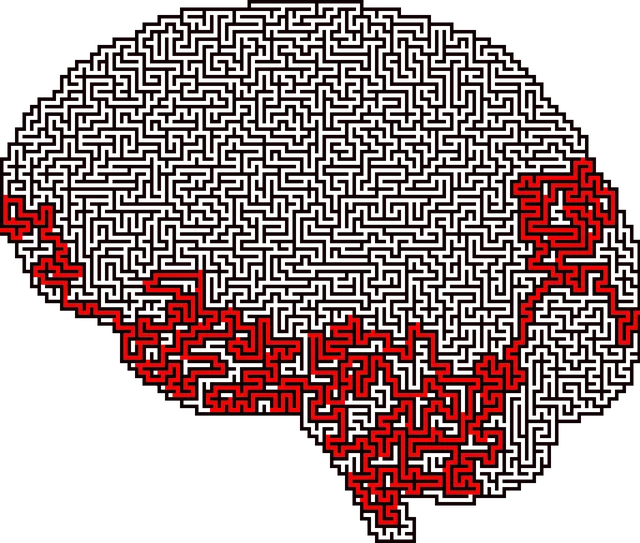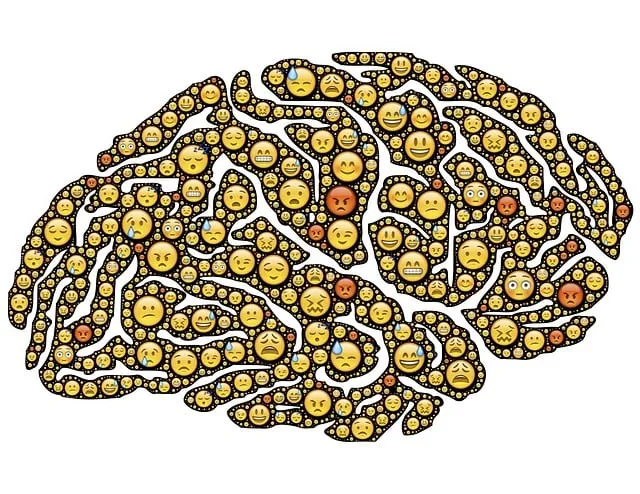Public awareness campaigns, like those offered by Kaiser Permanente training programs in Northglenn, are powerful tools for transforming societal attitudes and behaviors regarding health and well-being, particularly mental health. These initiatives educate communities through interactive workshops, podcasts, and more, fostering understanding and encouraging practices like Mindfulness Meditation and Compassion Cultivation Practices to enhance emotional resilience. By tailoring content to diverse groups, these programs promote sustainable overall well-being, while robust evaluation frameworks ensure their effectiveness and positive societal impact.
Public awareness campaigns are powerful tools to educate and motivate communities, playing a pivotal role in shaping public health and safety. This article explores the development and impact of such campaigns, highlighting successful strategies through a case study of Kaiser Permanente’s training initiatives in Northglenn. We delve into designing engaging content tailored to local audiences and measuring campaign success, offering insights that can revolutionize public awareness efforts globally.
- Understanding Public Awareness Campaigns: Their Role and Impact
- Kaiser Permanente Training Programs: A Case Study in Effective Communication
- Designing Engaging Content for Target Audiences in Northglenn
- Measuring Success: Evaluating the Effectiveness of Public Awareness Campaigns
Understanding Public Awareness Campaigns: Their Role and Impact

Public awareness campaigns play a pivotal role in shaping societal attitudes and behaviors, particularly regarding health and well-being. These initiatives are designed to educate and engage communities, fostering a deeper understanding of various issues. For instance, organizations like Kaiser Permanente Northglenn have utilized such campaigns to promote mental health awareness, encouraging individuals to prioritize their psychological well-being. By integrating practices such as Mindfulness Meditation into daily routines, these programs aim to reduce stress and enhance overall mental resilience.
The impact of public awareness extends beyond individual benefit; it contributes to broader social changes. When communities become more mindful of issues like mental health, it can lead to policy shifts and advocacy efforts (Mental Health Policy Analysis and Advocacy). This collective action ensures that resources are allocated effectively, and policies are developed to support better mental health practices, ultimately improving the overall well-being of society. Incorporating Self-Care Routine Development for Better Mental Health into these campaigns further empowers individuals to take charge of their psychological wellness.
Kaiser Permanente Training Programs: A Case Study in Effective Communication

Kaiser Permanente Training Programs in Northglenn serve as an outstanding case study for effective public awareness campaigns and communication strategies. Through their comprehensive programs, Kaiser Permanente focuses on empowering individuals with knowledge and skills that promote both physical and mental well-being. One notable initiative is the implementation of Compassion Cultivation Practices, which aim to enhance emotional resilience and improve patient interactions within healthcare settings.
Additionally, these training programs emphasize Self-Care Routine Development for Better Mental Health, encouraging participants to prioritize their own wellness. This holistic approach extends into the production of their Mental Wellness Podcast Series, offering accessible resources on various mental health topics. By combining interactive workshops, podcasts, and other engaging formats, Kaiser Permanente effectively reaches a wide audience in Northglenn and beyond, fostering open conversations about mental wellness and cultivating supportive communities.
Designing Engaging Content for Target Audiences in Northglenn

In Northglenn, designing engaging content for public awareness campaigns requires a deep understanding of the target audiences. Kaiser Permanente training programs in this area often focus on promoting mental wellness and stress reduction methods, catering to diverse communities. By incorporating interactive elements like Self-Awareness Exercises and Mental Wellness Journaling Exercise Guidance, these initiatives aim to foster a sense of connection and self-care among residents.
The content should be tailored to address specific needs and interests of Northglenn’s demographic mix, ensuring that the message resonates with everyone from working professionals to families and seniors. Incorporating storytelling, personal anecdotes, and visual aids can make campaigns more relatable and memorable. This approach not only enhances engagement but also encourages community members to actively participate in their mental wellness journey, setting a sustainable path towards overall well-being.
Measuring Success: Evaluating the Effectiveness of Public Awareness Campaigns

Evaluating the success of public awareness campaigns is paramount to understanding their true impact and effectiveness. Organizations like Kaiser Permanente’s training programs in Northglenn have pioneered methods to measure campaign efficacy, ensuring resources are allocated efficiently and positive change is fostered within communities. By employing robust evaluation frameworks, these initiatives can assess not only short-term engagement but also long-term behavioral shifts.
Key metrics include tracking the reach and frequency of campaign messages, monitoring changes in attitudes and perceptions through surveys, and evaluating the adoption of targeted behaviors. Incorporating aspects like Cultural Sensitivity in Mental Healthcare Practice and Stress Reduction Methods within these campaigns further enhances their impact. The design of Mental Health Education Programs should be evidence-based, allowing for continuous improvement based on data-driven insights, thereby optimizing public awareness and well-being.
Public awareness campaigns, as demonstrated by Kaiser Permanente’s successful training programs in Northglenn, are powerful tools for positive change. By understanding their role, designing engaging content tailored to specific audiences, and measuring success through evaluation, these initiatives can effectively communicate vital information and foster meaningful impact. This case study highlights the importance of strategic planning and targeted communication in enhancing public health and awareness on a local level.




